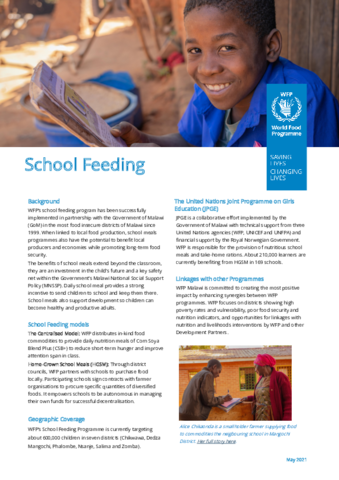
The programme is currently targeting about 600,000 children in seven districts (Chikwawa, Dedza Mangochi, Phalombe, Nsanje, Salima and Zomba).
The benefits of school meals extend beyond the classroom, they are an investment in the child’s future and a key safety net within the Government’s Malawi National Social Support Policy (MNSSP). Daily school meal provides a strong incentive to send children to school and keep them there. School meals also support development so children can become healthy and productive adults.
School feeding has high return on investment. For every US$1 invested in school feeding, US$20 are returned to education (through human capital) and to the local economy.
WFP’s school meals programme in Malawi has reduced absenteeism by 5 percent and dropout rates by 2.9 percent. Attendance increased from 77 percent to 92 percent.
Under the United Nations Joint Programme on Girls’ Education, where diversified school meals are provided alongside other interventions, a sharp reduction in drop-out rates for girls from 15.6 percent to 5.2 percent.
Evidence in Malawi also suggests positive impact of school feeding on literacy, dietary diversity, and health and nutrition.
